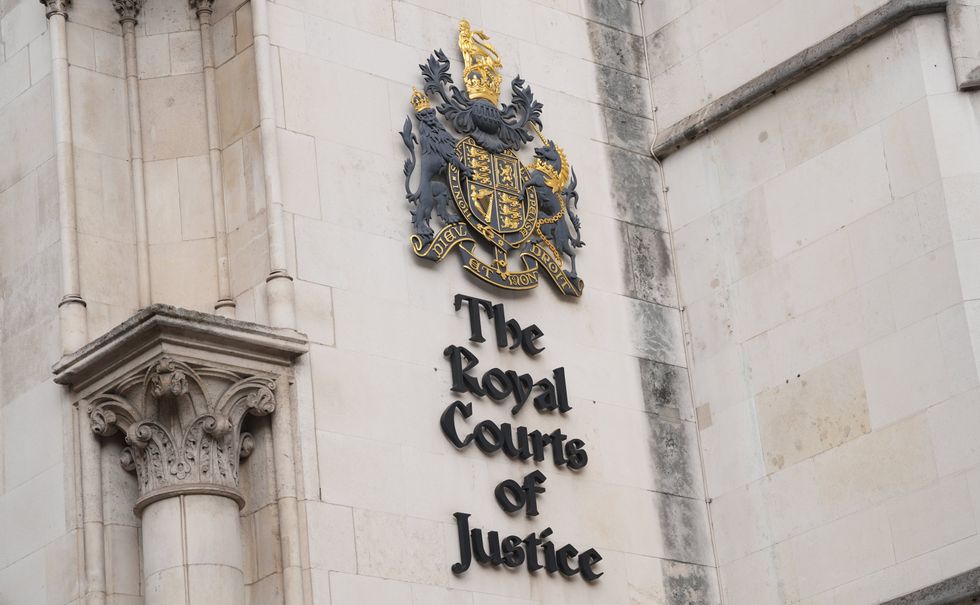Bitter family row leaves 'self-absorbed' son disinherited from mum's millions after losing court battle when he insulted her 'old-fashioned' home

Andrew Grijns felt he was wrongfully 'disinherited' out of his mother's £3.85million Chelsea townhouse
Don't Miss
Most Read
Trending on GB News
A financier who sued his elderly mother for £2.6million has been left reeling after losing his court battle.
Andrew Grijns left London’s High Court with a £1million bill after falling short in his legal battle against his own mother, Janice Grijns, after claims that he was wrongfully "disinherited" out of her £3.85million Chelsea townhouse.
Mr Grijns forged a successful career for himself in the London finance market, and lived in the house for over 20 years, saving him an estimated £1million in rent.
While he and his parents were close for many years, Mr Grijns fell out with his mother following the death of his father, Lee, in 2019. Both remained in the property.
TRENDING
Stories
Videos
Your Say
The son claimed he had been promised two-thirds of the townhouse's value - standing at a whopping £2.6million - while his mother accused him of "vilifying and bullying him and turning against him", and added that her son wanted "her dead so that he could have the property".
Mr Grijns was told to leave the house immediately by his mother, sparking a huge court spat in which both parties - each claiming ownership of the property - accused the other of "trespassing".
The son claimed that he had to live in the house instead of moving on and purchasing another house because of the "promises made to him by his parents as to the future of the property".
He added that he had been forced to put up with his mother's "old-fashioned" interior, while suggesting she should even spend time in prison.

Andrew Grijns claimed that he was wrongfully 'disinherited' out of his mother's £3.85m Chelsea townhouse
|GETTY
But a judge has dismissed Mr Grijns's claims, slamming the financier as "self-absorbed" and ordered him to leave the property and pay his mother £85,000 per year from the date he leaves.
Mr Grijns also faces a whopping court bill of up to £1million - with around £750,000 of that his mother's.
After the verdict, Master Timothy Bowles said: “The reality is that Andrew has had the opportunity to live in a substantial property in a desirable part of London at very modest cost for the best part of a quarter of a century.
“Andrew is a person who is entirely self-absorbed and whose paramount concern is entirely for himself.
“Andrew has, with some regularity, insulted and, to use the vernacular, ‘bad-mouthed’ his mother. He has accused her of vilifying and bullying him and of being evil, destructive and wicked. He has accused her of senility and dementia.
LATEST DEVELOPMENTS
Reform council leader vows 'party will NOT go woke' as authority replaces flags with lights
Britain set for 'thundersnow' phenomenon as freezing Arctic winds batter nation
Mountain of waste dumped in Oxfordshire field found to contain rubbish from councils

Andrew Grijns left London’s High Court with a wounding £1m bill and has been ordered to pay his mother £85,000 per year after he leaves
|PA
“The true and stark position was that Andrew chose to remain and make his life at the property, not because of any assurances made – there were none – but because it suited him.”
The court heard that Janice, a realtor turned academic, and banker Lee bought the four-bedroom house in 1994, with Mr Grijns moving in 1999.
The property was said to have been useful, given Dad Lee's commitment to spending time in the capital due to his occupation, while Mrs Grijns saw it as an opportunity for a holiday home and could enjoy local entertainment.
Mr Bowles concluded: “Andrew, when cross-examined, did not find it in him to acknowledge the considerable advantages that he had been given by his parents in being allowed to make his home at the property over very many years.
“That is, I think, an indication of the extent of his self-absorption.
“That opportunity has also enabled Andrew, throughout most of the period under consideration in this case, to pursue his well-paid career in the finance industry.
“The true reason as to why Andrew remained at the property, made his life there and, to the extent that he did, carried out improvements to the property, has nothing to do with promises, or assurances, but everything to do with his own wishes and convenience. Put shortly, it suited him to stay.
“It is easy to see why Andrew remained at the property and how he was enabled to live what, in vernacular terms, might be described as the ‘good life’.”
More From GB News










